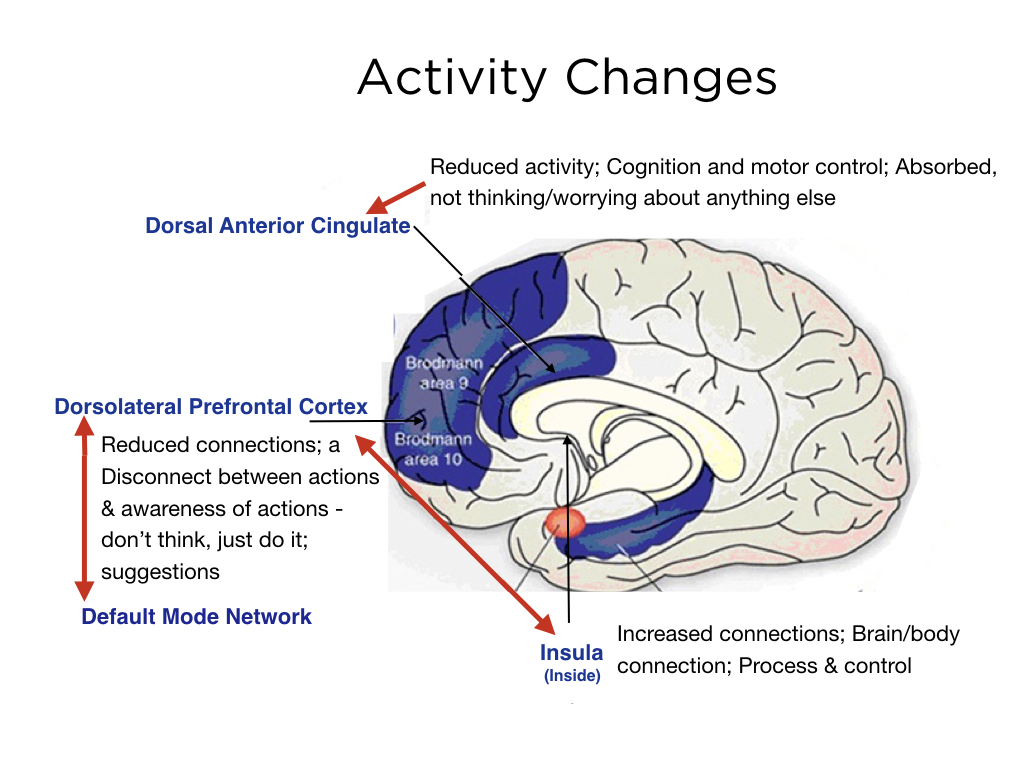For this week’s passion blog I am going to write about the topic of hypnosis, how it occurs and the biology behind it. I have always been extremely curious about this topic and have never completely understood the science behind it. It is a psychological phenomenon in which people are in a state of highly focused attention associated with high levels of relaxation. Under this “trance” suggestibility is heightened and oftentimes people are given post hypnotic suggestions that they will perform once out of the relaxed state. While most people believe that hypnosis is simply an act, it has been used for centuries for pain control. Within the Civil War, army soldiers were often hypnotized before an amputation to help with the pain. Patients who receive hypnosis before surgery report less post-surgical pain, nausea, fatigue and discomfort. Hypnosis can help to ease people throughout a surgery reducing stress and speeding up the process (“Hypnosis today”).
People vary widely in their ability to respond to hypnotic suggestions. While in some cases, hypnosis is very effective it has been known to be extremely detrimental as well. In the 1990’s some patients were convinced by their therapists that they had been molested or abused as children due to hypnotically induced memories. As a result, many innocent people were wrongly put in jail; as a result, in a 2007 Supreme Court decision, post-hypnotic evidence was determined inadmissible. In other ways it has been beneficial; when looking at 59 studies of the effect on hypnosis on smoking, it was determined that hypnosis was more effective than regular treatment at helping patients (“Hypnosis today”). Hypnosis has also proven to be effective to obtain REM sleep as well as weight loss (“Does Hypnosis Work?”).

(https://www.researchgate.net/figure/Effects-of-the-North-Carolina-hypnosis-treatment-protocol-for-IBS-on-bowel-symptoms-in_fig1_277871259)
Hypnosis happens naturally as well as clinically; during routine parts of the day, your brain enters a hypnotic state. Under hypnosis, we enter an unaltered state of unconsciousness in which behavioral control is dissociated from awareness. For example, in one experiment a hypnotized group of subjects was asked to place their hands in cold water. The hypnotized patients were able to bypass their original thought of pulling their hands out of the water and instead left them in for a longer period of time. Another example of suggestibility that may occur within our own lives is within wine tasting. When a subject is offered 2 glasses of the same type of wine and told one is a more expensive wine, the subject will almost always associate the more expensive wine with a better taste (“Does Hypnosis Work?”).

(https://farehypnosis.com/product/brain-activity-in-hypnosis/)
While the effects of hypnosis on the unconscious state are still not completely clear, researchers have found that hypnosis causes observable changes in multiple brain areas. These areas are characteristic of consciousness, spontaneous thought, concentration, and awareness of bodily processes. These brain changes include, decreased connectivity between the dorsolateral prefrontal cortex and the posterior cingulate cortex, increased connectivity between the dorsolateral prefrontal cortex and the insula, and reduced activity in the dorsal anterior cingulate cortex. As a result of these brain changes, researchers have concluded the existence of an altered state of consciousness (“Brain Imaging of Hypnosis”) .
“Does Hypnosis Work? Understanding the Science of Hypnotherapy.” Grace Space Hypnosis, 13 Feb. 2019, gshypnosis.com/does-hypnosis-work-understanding-the-science-of -hypnotherapy-2/.
“Brain Imaging of Hypnosis.” Brain Imaging of Hypnosis, johnmongiovi.com/pages/brain- imaging.
“Hypnosis today.” Monitor on Psychology, American Psychological Association, www.apa.org/monitor/2011/01/hypnosis.
Very interesting examination of the subject. I have always been curious about the neurological mechanics of hypnosis, and the terms you present are much beyond my current knowledge of the human brain. It has always amazed me that forensic hypnotizers are able to elicit otherwise lost memories from the minds of witnesses, despite such evidence rightfully not able to affect court proceedings. Each one of your posts exemplifies just how complex and intriguing the human brain is; they render the prospect of artificial intelligence on a human level more and more inconceivable.
This is super cool; I had no idea there was any science behind hypnosis; I’ve always assumed it some freaky hocus pocus. I also liked that you mentioned the Supreme Court ruling; It’s crazy to see how much our criminal justice system has changed. Like how in the past you could be imprisoned or hanged for witchcraft or conjure, and it was believed criminality was the result of being demon-possessed.
I’ve learned a lot about hypnosis in my psychology classes but I didn’t know that it could be used for pain control. That actually makes a lot of sense and it makes me wonder who thought of that idea first.
Super cool! I have always been scared of hypnosis, because I am afraid of losing control. However, it is a super interested topic. My best friends mom actually does hypnosis therapy for a living.